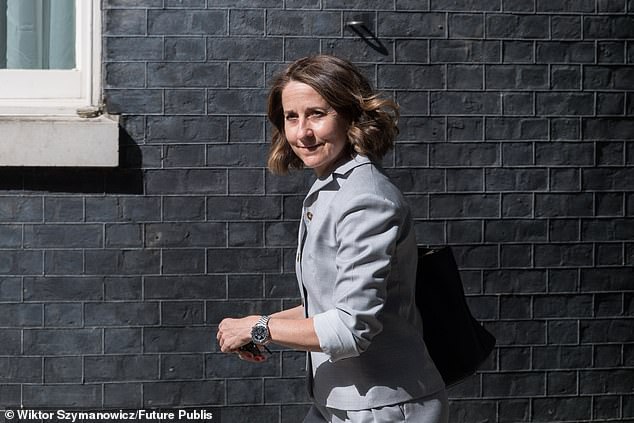Keir Starmer is still scrambling to defuse a disastrous Labour welfare revolt despite making an humiliating climbdown.
Around 50 MPs look set to defy the PM in a crunch vote tomorrow in what could be a devastating blow to his authority. It might even still be enough to overturn Labour’s huge majority.
Ministers are due to lay out details of the concessions that were announced last week, including guarantees that no current health or disability benefit claimants will be worse off.
That is expected to wipe out more than half the £5billion of savings Rachel Reeves was hoping for from the package, raising the threat of more tax rises in the Autumn.
Sir Keir has blamed the G7 in Canada and Nato summit in The Hague last week for failing to address the Labour revolt earlier.
Work and Pensions Secretary Liz Kendall is pledging that if MPs pass the Bill at second reading tomorrow it will be amended at committee stage.
The original plans restricted eligibility for the personal independence payment (Pip) and cut the health-related element of universal credit.

Keir Starmer is still scrambling to defuse a disastrous Labour welfare revolt despite making an humiliating climbdown
The changes to Pip will now only apply to new claims from November 2026.
Plans to cut the health-related element of universal credit have also been blunted, with all existing recipients to have their incomes protected in real terms.
Details of a review of the Pip assessment, to be led by disabilities minister Stephen Timms and ‘co-produced’ with disabled people, will also be published.
Draft regulations for the ‘right to try’, to enshrine in law the right for people receiving health and disability benefits to try work without fear of reassessment, will also be laid in Parliament.
The Work and Pensions Secretary said: ‘We must build a welfare system that provides security for those who cannot work and the right support for those who can. Too often, disabled people feel trapped, worried that if they try to work, they could lose the support they depend on.
‘That is why we are taking action to remove those barriers, support disabled people to live with dignity and independence, and open routes into employment for those who want to pursue it.
‘This is about delivering a fairer, more compassionate system as part of our Plan for Change which supports people to thrive, whatever their circumstances.’
Some £300million in employment support will also be brought forward over the next three years.
Those with severe conditions who are unlikely to recover – about 200,000 people – will not be called for a reassessment of universal credit.
From next year to 2030, all those who already receive the health element of universal credit and new claimants with severe conditions and 12 months or less to live will see an annual rise to their combined standard and limited capacity for work allowance at least in line with inflation.
Ms Kendall had confirmed concessions to the plans after 126 Labour backbenchers signed an amendment that would have halted the Universal Credit and Personal Independence Payment Bill at its first Commons hurdle.
That is now expected to be withdrawn after the move appeased some rebellious MPs.
But others are still committed to backing a similar amendment.
Labour MP Rachael Maskell said she would sign the new amendment aiming to stop the Bill, saying it was not clear how the promised concessions would be brought in.
‘There’s no confidence… we’re being asked to sign a blank check even with these changes,’ she said.
Vicky Foxcroft, who quit as a Labour whip over the reforms, told The Guardian there were ‘areas where I still think there’s need for movement’ and that she had not decided how to vote.

Work and Pensions Secretary Liz Kendall is pledging that if MPs pass the Bill at second reading tomorrow it will be amended at committee stage
Olivia Blake, a Labour MP with a disability, told the paper the changes could create ‘an unethical two-tier system that treats two people with the exact same injury or illness differently’.
Conservative leader Kemi Badenoch has called the concessions ‘the worst of all worlds’.
The Liberal Democrats plan to vote against and have called for the Government to speed up access-to-work decisions to help people enter the workforce.
Deputy leader Daisy Cooper said: ‘Liberal Democrats simply cannot support any measures that make things harder for unpaid carers, disabled people who rely on support with daily tasks in order to stay employed, and those whose disabilities mean that they will never be able to work.












